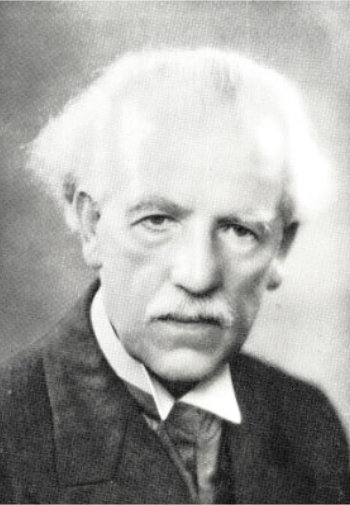J H Jones was born at Ty ar y Graig in Talsarnau on May 29th 1860 to William and Beti Jones. His father worked for Mr Barker who was a gardener at the mansion, Glyn Cywarch. When JH was born his father earned fourteen shillings a week and on that eleven children were brought up. In order to make ends meet, his mother as well as raising the children would sew and mend clothes for the locals.  JH was brought up in the period when the door of the house did not need to be locked. When their father was not present and they as a family held a family service each evening and every morning, his mother would ask one of them to place a spoon above the latch so that no-one could enter and spoil the atmosphere of the service.
JH was brought up in the period when the door of the house did not need to be locked. When their father was not present and they as a family held a family service each evening and every morning, his mother would ask one of them to place a spoon above the latch so that no-one could enter and spoil the atmosphere of the service.
JH could remember Capel Bethel, the chapel which is on the main street in Talsarnau, being built, but has now been closed for a number of years. He remembered Bennett Jones, Bryn y Felin who was an elder at Capel Bethel and was Gwyneth Vaughan's father, author of O Gorlannau'r Defaid, Plant y Gorthrwm and other books,
Although the Welsh Not was used in the schools in JH's time, he does not remember seeing it being used. The education he received was very English and he notes that this is the verse by Milton that they sang before going home from school:
Let us, with gladsome mind,
Praise the Lord, for He is kind;
For His mercies, they endure,
Ever faithful, ever sure.
As he and his friends did not understand the words, nor had anyone bothered to explain, this is how they sang the first line:
Lettuce, gwydda glas a maidd. . . . . . being - lettuce, blue geese and mead !
He refers to the fact that he did not learn much Welsh at school but his father owned the book 'Drych y Prif Oesoedd' by Theophilus Evans. On Sundays children were not allowed to read only religious books. When his father had a nap before going to Sunday School, JH would seize the opportunity and took 'Drych y Prif Oesoedd' to read under the plum tree at the back of the house. He claims he owes a great debt to the book 'Drych y Prif Oesoedd'.
J H Jones had an apprenticeship with a tailor in Porthmadog after leaving school. He then went to Birkinhead to learn the trade of typesetter. From there he went to the Herald Gymraeg Office in Caernarfon in 1882 as a typist. He returned to the Liverpool area in 1890 to work in the Cymro newspaper Office and in the same year, he married Elizabeth Parry and in time they had three children.
He was an elder at MC Parkfield Chapel, in Woodchurch Road chapel and in Laird Street, Birkinhead.
He left Y Cymro and worked as a typesetter in Wrexham, and during this period he was writing weekly articles and essays for Y Genedl paper outside normal working hours.
In 1906 he agreed to take charge of a new weekly paper for the Liverpool area, Y Brython. The paper soon became popular and was sold throughout Wales. He believed that his main task was to protect Welsh civilization and culture. While in office J. H. Jones witnessed the scene at the Birkenhead National Eisteddfod in 1917, when he was informed that the poet of the Chair was Hedd Wyn, the young farmer from Trawsfynydd, who had been killed in the war in France shortly before the ceremony. JH was at the Eisteddfod at the time and notes what an amazingly sad experience that was. He was the editor of the paper until 1931. He was followed by Gwilym R Jones who later became the editor of Y Faner after the Brython came to an end in 1939.
After his time at Y Brython, J H lectured extensively and in 1932 he went on a lecture tour in the United States of America. In 1941 he went to live with his daughter and her husband in Penygroes, Caernarfonshire where he died on 23rd March 1943.
Among the books that he published are four notable ones:
O'r Mwg i'r Mynydd 1913
Swp o Rug 1920
Moelystota 1932
Gwin y Gorffennol 1938
JH refers in his book Gwin y Goffennol which shows his affection for this local area and its people, to a number of children who were contemporary with him when he was at school. He refers to a number using the custom that was very much alive at that time which was to add the name of the home after the child's name such as Wil Rhyd Goch, Ffranc Ynys Gifftan or Mathaw Llechollwyn. He also conveys his longing for them in Ieuan Glan Geirionydd's verse:
Where, how, is today the multitude that was
Playing, learning and discussing happily together?
Some in graves sleeping and others across the world,
That there is no bell today that can recall them to the fold.


